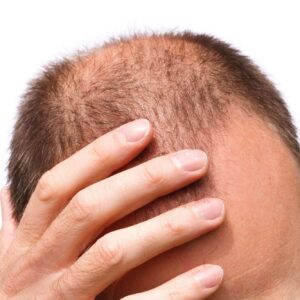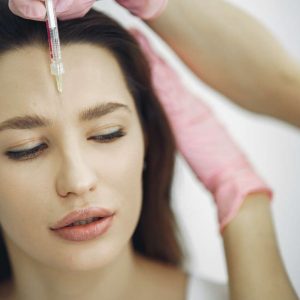If you are losing more hair than you are growing, then you are experiencing hair loss.
Although more common in women over 40, it can occur at any age and can be caused by many different things.
Hair loss, also known as alopecia, is not the same as hair shedding, which involves the excess shedding of hair each day and is a part of a natural balance where some hairs fall out, and others grow in.
If you suffer from hair loss, this can have a hugely detrimental effect on your confidence and self-esteem, but fortunately, there are treatments that can help you.
Keeping reading to find out what may have causes your hair loss, plus how you can effectively treat it.
Why are you experiencing hair loss?

When understanding what has caused your hair loss, it is first important to understand the three main types of hair loss:
- Anagen effluvium: This type of hair loss is caused by medications that poison growing hair follicles. Sometimes this type of hair loss is permanent.
- Telogen effluvium: This is caused by an increase in the number of hair follicles that reach the telogen phase, which is when your hair falls out. Causes of this type of hair loss include stress, an abnormal thyroid, hormonal changes, and medications.
- Androgenetic alopecia: Also known as female pattern hair loss, this is the most common type of hair loss in women and is where the hair thins over the top of the head and on the sides. Genes, age, and menopause cause this type of hair loss.
Although anyone can be affected by hair loss, it is typically more common in:
- Women who are older than 40
- Women who have just given birth
- Women who have had chemotherapy
- Women who have hairstyles that pull on the hair
- Women who use harsh chemicals on their hair
- Menopausal women
How to treat hair loss in women
The specific treatment that your doctor recommends will be dependent on the cause of your hair loss, but rest assured, there is a hair growth medicine that is suitable for nearly every case of hair loss, no matter how severe.
If your hair loss is due to pregnancy, you may not need any treatment at all, as your hair will simply start to restore itself after a certain period of time.
Suppose you are experiencing hair loss due to stress or a vitamin deficiency. In that case, this is easily rectified too, and your doctor will be able to advise you on what vitamins you should be taking to promote healthy hair growth.
There are several options available to those who need medication or more invasive treatment, including hair transplant surgery, Platelet-rich plasma injections (PRP), and microneedling.
Top tips for dealing with hair loss in women:
- Color your hair as this can make it appear fuller
- Massage your head regularly to stimulate blood flow
- Add layers to your hair to make it appear fuller
- Use a volumizing shampoo
- Avoid any hair products that weigh the hair down
- How To Create A Safe And Comfortable Home Environment For In-Home Care In Boca Raton? - July 16, 2024
- 10 Trendy Black Nail Ideas To Elevate Your Nail Game - May 6, 2024
- Getting A Free Divorce In Virginia? Here’s What To Expect - April 24, 2024







No Comments